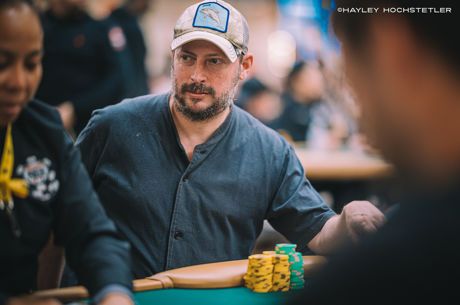Judge Sides w/ Building Inspector in Case Against Texas Card House Dallas

Table Of Contents
The Dallas building official who filed a lawsuit against the city's Board of Adjustment and Texas Card House won in court, dealing a swift blow to the Texas poker community, but it was far from a knockout punch.
Although the victory for plaintiff Andres Espinoza could be seen as damaging for card rooms across the state, the fight continues. Texas Card House Dallas will soon begin the process of filing an appeal.
Last month, in preparation for the Oct. 25 court date, Texas Card House CEO Ryan Crow told PokerNews he anticipates the case will eventually end up in the state's Supreme Court one way or the other. If he's correct, an unfavorable ruling could serve as a death blow to poker rooms in the Lone Star State.
Bad Day for Texas Poker, But Not the End of the World
In January, TCH Dallas was slapped with a Certificate of Occupancy revocation despite its business model being approved by the city in 2020. In fact, the same city council member who originally backed the business plan has since gone back on his word. The card room has remained open while fighting what will inevitably turn into a lengthy legal battle.
Two months later, the Dallas Board of Adjustment voted in favor of TCH's appeal, a major victory for the poker club. But, shortly after, interim city building inspector David Session, vowed to sue the BOA for, as he claimed, illegally reversing the COO decision. On Thursday, three days after the mini trial, District Court judge Eric V. Moye agreed.
"The Court finds that the Board of Adjustment abused its discretion and made an illegal decision when it reversed the Building Official's revocation of Certificate of Occupancy number 2003031040, which was issued in violation of state law to 'Ryan Crow' DBA 'Texas Card House,' the judge wrote in court documents obtained by PokerNews.
What the Law Says
In the state of Texas, poker rooms such as TCH operate as social clubs and charge membership and seat fees instead of taking rake out of cash game pots. They do so because collecting rake is illegal, but some lawmakers argue the same can be said about the club-based model.
states that so long as the gambling occurs in a private place, no economic benefit other than personal winnings were received from the game, and that every player had an fair shot at winning, the game is legal.
The definition of "economic benefit" has been debated across the state, with some officials arguing the term implies that as long as rake isn't collected during the games, the poker is legal. Others, however, claim that any form of gambling in Texas is illegal regardless of how and where the games are played.
One of two things will likely happen, perhaps within the next couple of years: the Texas Supreme Court will determine the legality of poker via the ongoing Texas Card House case, or lawmakers will reword the letter of the law to clear up any confusion.









